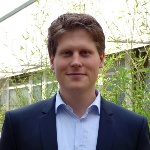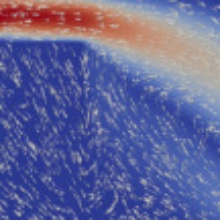New joint publication, published in "Computer Methods in Applied Mechanics and Engineering". The work has been developed within SimTech and the SFB 1313 research project A02.
Authors
- Costanza Aricò (University of Palermo)
- Rainer Helmig (University of Stuttgart, SFB 1313 research projects A02 and C02)
- Daniele Puleo (University of Palermo)
- Martin Schneider (University of Stuttgart, SFB 1313 research projects A02 and INF)
Abstract
A new numerical continuum one-domain approach (ODA) solver is presented for the simulation of the transfer processes between a free fluid and a porous medium. The solver is developed in the mesoscopic scale framework, where a continuous variation of the physical parameters of the porous medium (e.g., porosity and permeability) is assumed. The Navier–Stokes–Brinkman equations are solved along with the continuity equation, under the hypothesis of incompressible fluid. The porous medium is assumed to be fully saturated and can potentially be anisotropic. The domain is discretized with unstructured meshes allowing local refinements. A fractional time step procedure is applied, where one predictor and two corrector steps are solved within each time iteration. The predictor step is solved in the framework of a marching in space and time procedure, with some important numerical advantages. The two corrector steps require the solution of large linear systems, whose matrices are sparse, symmetric and positive definite, with -matrix property over Delaunay-meshes. A fast and efficient solution is obtained using a preconditioned conjugate gradient method. The discretization adopted for the two corrector steps can be regarded as a Two-Point-Flux-Approximation (TPFA) scheme, which, unlike the standard TPFA schemes, does not require the grid mesh to be -orthogonal, (with the anisotropy tensor). As demonstrated with the provided test cases, the proposed scheme correctly retains the anisotropy effects within the porous medium. Furthermore, it overcomes the restrictions of existing mesoscopic scale one-domain approaches proposed in the literature.

Rainer Helmig
Prof. Dr.-Ing. Dr.-Ing. h.c.Project Leader, Former Spokesperson, Research Projects A02, A05, and C02

Martin Schneider
Dr.-Ing.Project Leader, Research Project A02, Project INF


